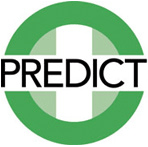Pragmatic Paediatric Trial of Balanced Versus Normal Saline Fluid in Sepsis (PRoMPT BOLUS)
A pragmatic, international randomised controlled trial comparing 0.9% saline to balanced fluids for sepsis resuscitation and initial maintenance.
Aim:
To evaluate the effectiveness and safety of balanced fluids for sepsis resuscitation and initial maintenance compared to 0.9% saline.
Setting and Target:
11 PREDICT sites in Australia and New Zealand; 2200 patients; MRFF funded. 23 PECARN (US) sites; 4500 patients; NIH funded. 12 PERC (Can) sites; 2600 patients; CIHR funded.
Primary outcome:
- Major Adverse Kidney Events (MAKE 30) at hospital discharge or within 30 days of enrolment (death, requirement for renal replacement therapy, persistent renal dysfunction).
- Inclusion criteria: Children aged 6 months – 18 years, requiring hospital admission for sepsis and >1 fluid bolus.
- Exclusion criteria: 40ml/kg fluid, clinician judgement not safe (suspected brain herniation, known hyperkalaemia / hypercalcaemia / hepatic or renal failure, known metabolic or mitochondrial disease, known pregnancy, known fluid allergy.
Ethics and consent:
Ethics approval for delayed consent (waiver of consent to randomise). Consent by the research team once patient stabilised.
Participating sites:
Australian and New Zealand sites: Kidz First Hospital Middlemore, Waikato Hospital, Starship Hospital, Royal Darwin Hospital, Gold Coast University Hospital, Queensland Children’s Hospital, Westmead Children’s Hospital, Sydney Children’s Hospital, Perth Children’s Hospital, Monash Health, Women and Children’s Hospital, The Royal Children’s Hospital. Townsville Hospital seeking funding.
Current status:
- Recruiting at 8/11 PREDICT sites, 101 patients enrolled to date. We are behind on enrolment, largely due to delays in getting sites up and running. Very few missed enrolments.
- US recruiting at 21 sites, with 1300 patients recruited so far. Canada are recruiting at 1 site, with 2 enrolments so far.
- Compliance with study fluids overall is good, more patients in 0.9% saline arm have been non-compliant. Some of these patients have been taken off the study fluid due to safety concerns by their treating team (hyperchloraemia etc).
- Site visits for data checking have commenced, with GCUH, WCH, MMC, and PCH all doing a great job of data entry.
- We have started sending out data queries, though the majority of these are missing data at this stage. We are working on monthly reports which will start being sent out soon.

